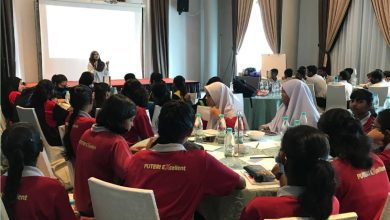Wellness
By SeeFoon Chan-Koppen


Trained in Ireland, both for his first medical degree as well as his oncology specialty, Dr Zul speaks with the authority of 16 years experience in Irish hospitals and has now returned to share his expertise in Malaysia. Lured home by TalentCorp, a government project to bring more professional Malaysians home, this Rawang lad has moved his family and children back to Malaysia and Dr Zul has been the sole oncologist of Pantai Hospital’s oncology wing who together with four oncology nurses, sees and manages all cancer cases undergoing chemotherapy for the past two years. Expansion plans for Day Oncology will see Dr Zul busier than ever.
As one of only 6 or 7 medical oncologists practising in Malaysia, Dr Zul explains that unlike clinical oncologists who perform both chemo and radiotherapy, medical oncologists only deal with chemotherapy. When asked why there is a need for this subspecialty, Dr Zul replied, “It means that we have more time to focus on all the latest treatments in the field of chemotherapy which is an ever-expanding sea of options especially as research and new drugs and protocols are discovered and found to work. We are therefore better armed to attack the different cancers with better choices and better protocols.”
He went on to elaborate, for example, that if two people present with breast cancer, their chemotherapy may be completely different with one requiring a more aggressive form of chemo using intravenous drips while the other may be on light chemo using only pills. Hormone sensitive cancers respond very well to Tamoxifen and work on pre and postmenopausal women whereas Aromatase inhibitors will only work on postmenopausal women. The prognosis with these drugs which do not require intravenous infusion are very good.”
Hormone insensitive tumours however, have a prognosis of 15-20% improvement on chemotherapy and may call for more aggressive measures that may include radiotherapy which will mean patients have to be referred to the other two hospitals of KPJ ISH and Fatimah. The one thing Dr Zul pleads with women in general is to give themselves a thorough self-examination of their breasts every month and at the first sign of a lump to rush to see their physician. Other preventative measures include mammograms or if radiation is a concern, to have ultra sound scans done on their breasts.
Lymphoma is another highly treatable cancer using chemotherapy and the outcome is good. As for colon cancer, Dr Zul cites a frightening statistic and that is that the incidence of this cancer will increase by 200% by the year 2020. He blames our lifestyle and food habits on this trend. To minimise the risk, Dr Zul advocates reducing the consumption of red meat, alcohol and processed foods. Also to stop smoking and if we eat chicken to not eat the skin.
“Its an educational process. Slow but necessary. People need to know that chemotherapy helps like in the case of a colon cancer patient who refused chemo and when she came to me was already in palliative care and oxygen dependent. I gave her light chemo and managed her symptoms and very soon she was back to driving and remained relatively pain free.”
Although chemotherapy can be a very expensive treatment, Pantai Hospital, through their CSR programme under the auspices of the Khazanah fund, recommended and administered by Dr Zul, have helped over 30 patients with chemotherapy, each one costing an average of RM50K.
“I am gratified that this CSR programme is available in Pantai, without which, many of my lower income patients would be left with no treatment.”
Contact Dr Zul at: Suite 505, 5th fl., Pantai Hospital Ipoh. Tel: 05 540 5555 ext: 5425/5426.

